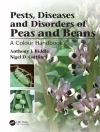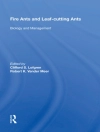HARVESTING FOODS from WEEDS
Food science is a rapidly changing and complicated subject. This new series addresses the current state-of-the-art concepts and technologies associated with the industry and will cover new ideas and emerging novel technologies and processes.
With the world’s population continuing to grow exponentially, with many ‘food deserts’ across the globe, including even in rich countries, food production is more important than ever. Finding alternative ways to produce food, in a sustainable way, is increasingly important and something that is on the minds of scientists, engineers, policy makers, and other professionals. Weeds are mainly undesirable plants, but nowadays researchers are exploring these weeds as a food source. Weeds can also grow in adverse climatic conditions with minimum nutritional requirements. Weeds that are rich in nutrients and bioactive compounds are suitable ingredients for functional foods and meet nutritional requirements at a cheaper cost and thus are lucrative and attractive for the food industry.
This latest volume in the groundbreaking series, ‘Bioprocessing in the Food Industry, ‘ covers different types of weeds, like eleusine indica, tribulus terrestris, hibiscus cannabinus, corchorus, gynandra gynandropsis, and many others. These weeds have limited food applications, mainly because of traditional food production. This book will provide detailed knowledge regarding the nutritional value, health benefits and processing methods of these weeds. Readers will learn how these weeds can be utilized for food production, healthy food development, and sustainability. Combining the technological requirements, food safety and quality, this book showcases the utilization of modern technologies to process food products with great benefits. The volume will comprehensively meet the knowledge requirements for the curriculum of undergraduate, postgraduate and research students for learning the concepts of bioprocessing in food engineering, as well as veteran engineers, policy makers, scientists, chemists, and other industry professionals. It is a must have for any library.
Over de auteur
Prerna Gupta, Ph D, is an assistant professor in the Department of Food Technology and Nutrition, Lovely Professional University, India. She has published numerous research papers and review papers in scientific and technical journals and two book chapters. She is an active member of the Association of Food Scientists and Technologists and is as a reviewer in for two journals.
Navnidhi Chhikara, Ph D, is an assistant professor in the Department of Food Technology at Guru Jambheshwar University of Science and Technology, Hisar, India. She has eleven years of teaching and research experience and has taught various subjects, including health foods and food safety at the graduate and postgraduate levels. She has published more than sixty research papers in scientific and technical journals, is an editor and editorial board member of multiple international journals, and has received numerous awards for her scholarship.
Anil Panghal, Ph D, is an assistant scientist in the Department of Processing and Food Engineering at CCS Haryana Agricultural University. Previously, he worked with Nestle as a production manager for nine years. His areas of expertise include bioprocessing, manufacturing, food chemistry, food science, and technology, FSMS, and nutrition. He obtained his Ph D in food technology, focusing on the molecular and physicochemical quality aspects of commercial wheat varieties. He has published various research papers in reputed journals and chapters for international publishers.












